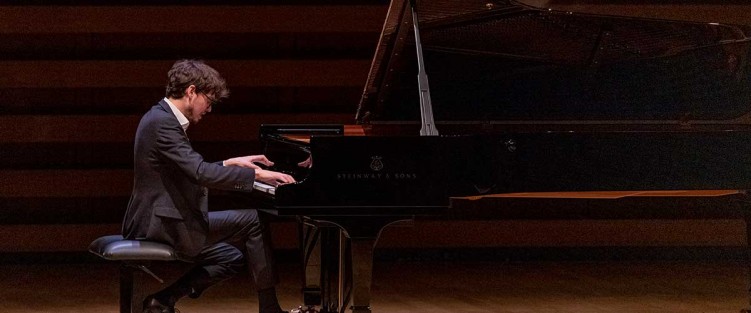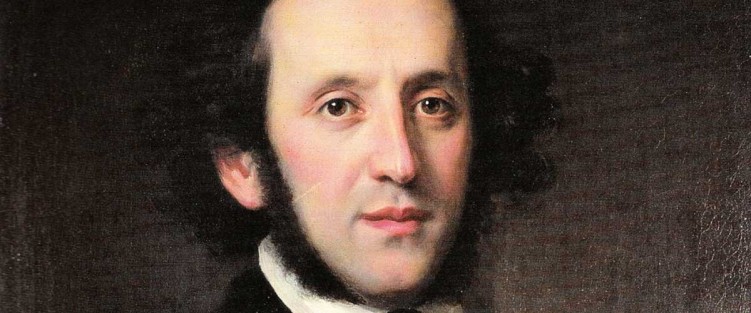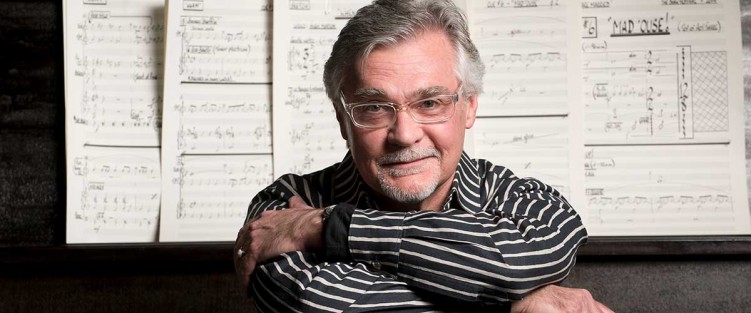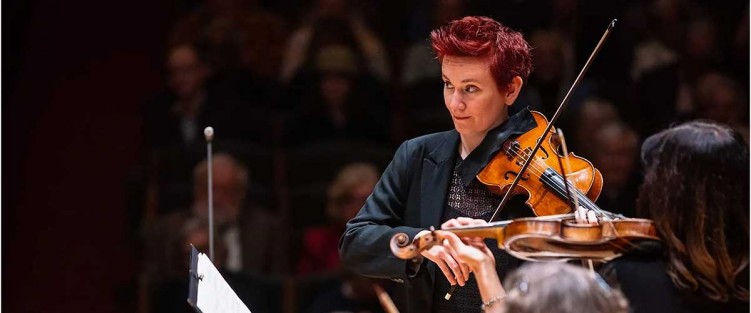 When he was 24, Lucas Debargue finished fourth in the 2015 Tchaikovsky Piano Competition but, more importantly, the Moscow Music Critics Association bestowed their top honours on him as “the pianist whose performance at the Competition has become an event of genuine musical significance, and whose incredible gift, artistic vision and creative freedom have impressed the critics as well as the audience.”
When he was 24, Lucas Debargue finished fourth in the 2015 Tchaikovsky Piano Competition but, more importantly, the Moscow Music Critics Association bestowed their top honours on him as “the pianist whose performance at the Competition has become an event of genuine musical significance, and whose incredible gift, artistic vision and creative freedom have impressed the critics as well as the audience.”
Just before the COVID-19 protocols took effect in March 2020, Debargue made his third Koerner Hall appearance headlined by ten Scarlatti sonatas in support of his SONY recording released in 2019. He returns to Koerner Hall on October 29, just days after his 32nd birthday in an intriguing recital titled “An Evening in Paris.” It features music written by composers who lived in Paris or wrote the music while staying there – pillars of the repertoire by Mozart (Sonata for Piano No.8 in D Minor, K310) and Chopin (Ballade No. 2 in F major, Op. 38; Prelude in C sharp minor, Op. 45; Polonaise-Fantaisie in A flat major, Op. 61; and the rarely performed tour-de-force, Alkan’s Concerto for Solo Piano, Op.39 No. 8, Op.39 No. 8).
Arguably Canada’s greatest living pianist, Marc-André Hamelin – whose own recital on October 16, also at Koerner, features an exploration of works by Fauré – made his early reputation mining the treasure trove of music by 19th-century composer-pianists, including the enigmatic Alkan. When Hamelin recorded the Concerto for Solo Piano for Hyperion, their website called it “one of the great pianistic high-wire acts – an epic work which demands unprecedented levels of technical ability and physical stamina. It is conceived on a breathtakingly grand scale and is rich with both orchestral sonorities and lyrical pianistic passages.”
 The new International Orchestra Series announced October 6 is an exciting addition to the Royal Conservatory’s dance card. The upcoming first visit to Toronto by the Chicago Symphony Orchestra (their first since 1914) is an intriguing prospect that prompts a few questions. Who better than Mervon Mehta, the Conservatory’s executive director of performing arts, to fill us in?
The new International Orchestra Series announced October 6 is an exciting addition to the Royal Conservatory’s dance card. The upcoming first visit to Toronto by the Chicago Symphony Orchestra (their first since 1914) is an intriguing prospect that prompts a few questions. Who better than Mervon Mehta, the Conservatory’s executive director of performing arts, to fill us in? 











